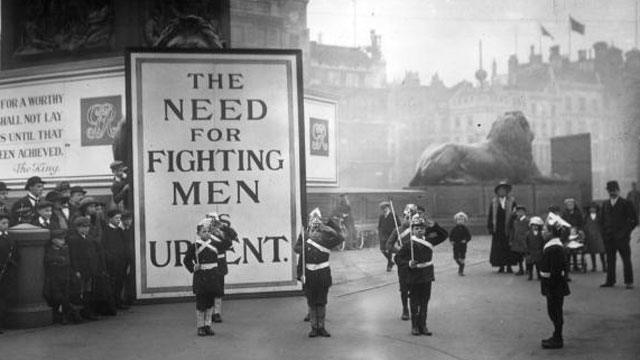Armistice Day and Wales' soldiers from the 'Forgotten War'
- Published
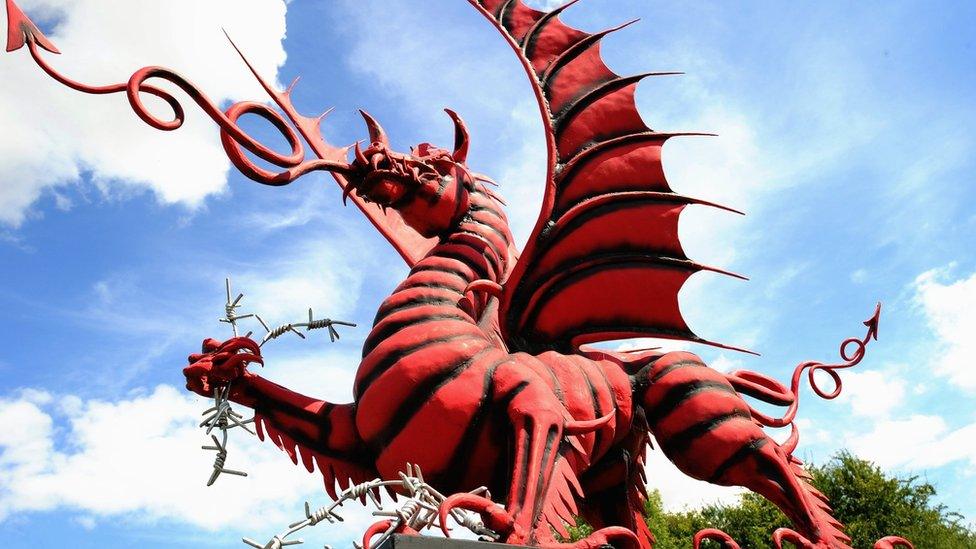
A memorial for Welsh soldiers is at Mametz Wood in France
This weekend people throughout Wales will be contemplating the words of World War One poet John McCrae: "In Flanders fields, the poppies blow."
However, for many commemorating their Welsh fallen, neither poppies nor Flanders hold much resonance.
Up to 40% of Welsh soldiers served in other theatres of war and never set foot in Belgium or France.
The 53rd (Welsh) Division, mostly from mid and north Wales, saw action in the Mediterranean and Middle East.
Yet, while the 38th (Welsh) Division are remembered with a sculpture of a Welsh Dragon at Mametz Wood in France, no such tribute exists for the men of the 53rd.
Historian Nia Griffiths, from Llanidloes, Powys, covered what she calls "The Forgotten War" as part of the thesis for her Masters degree.
She discovered that of the 114 names on the town's war memorial, 35 died in action at Gallipoli and Gaza, but also in Egypt, Mesopotamia and Thessaloniki, Greece.
She said: "It's true to say that 68 of the fallen were killed on the Western Front and they should rightly be honoured, but around 40% died in the Middle East, and surely that's a high enough percentage for those men's stories to also be heard?"
She thinks official commemorations can be a "little bit lazy" as each Remembrance Sunday "we say they shall never be forgotten", but Ms Griffiths believes a large chunk of men do get forgotten.
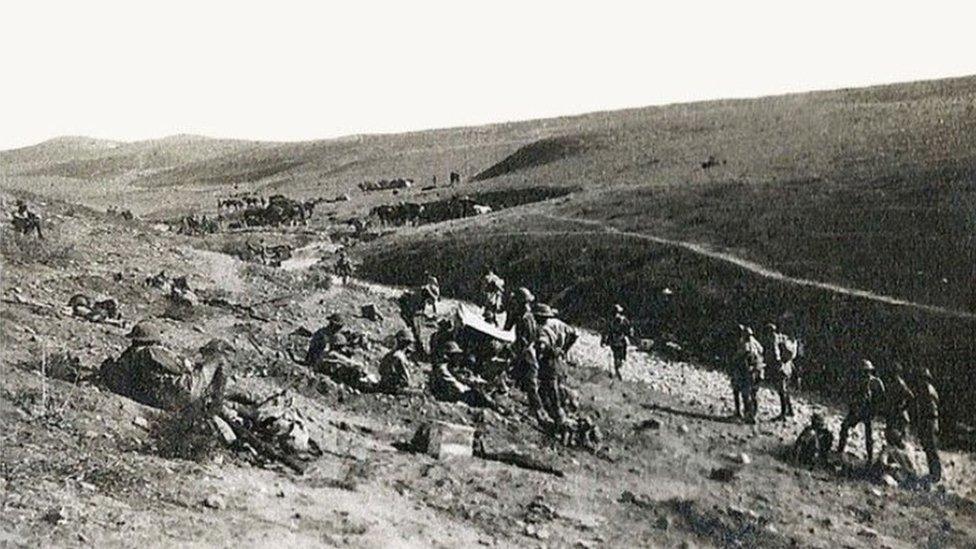
Many Welsh soldiers never stepped foot in Europe to do battle
She added that on top of the death toll in sheer numbers alone, often the impact on rural Welsh communities was even more pronounced.
"Across the four parishes of Llanidloes, many of the men volunteered in the early stages of the war," she said.
"They were early and enthusiastic adopters of Kitchener's 'Pals Battalions', maybe because there was a closer sense of community spirit than in the industrialised south, maybe because work wasn't as plentiful or financially rewarding in mid and north Wales, but the effect was that often entire generations of rural towns and villages were wiped out."
Professor of modern British history at Aberystwyth University Sian Nicholas said the picture was very similar in her town.
As part of a Heritage Lottery Fund programme to mark the WW1 centenary in 2014, she created an interactive map of the 1,000 or so servicemen from Aberystwyth known to have seen action, and where they had fought.
She said she was astonished by the findings.
"Yet whenever I teach school children, or even students for that matter, and ask them for the first thing which comes into their heads when they think of WW1, almost all of them say mud, trenches, poppies, etc. No-one ever mentions sand or camels or flies."
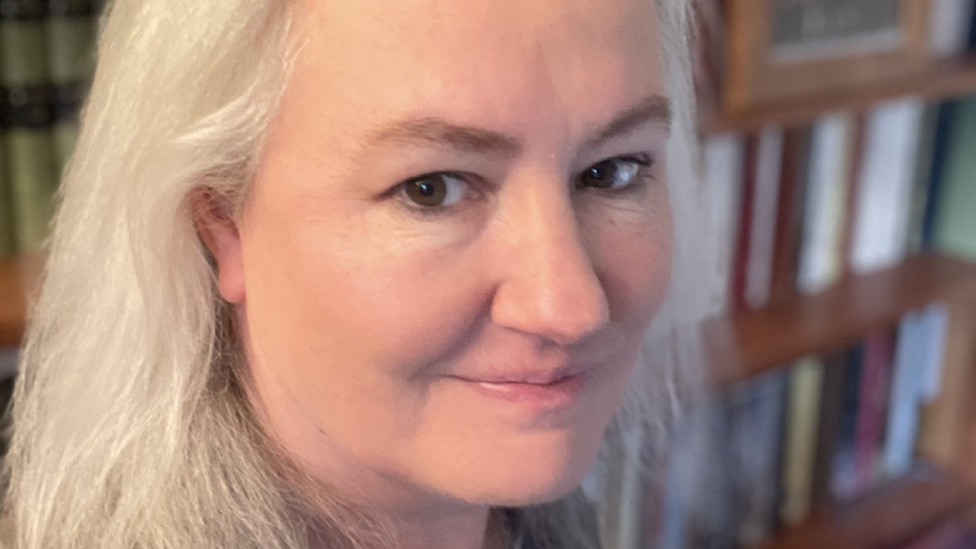
Llanidloes historian Nia Griffiths says that entire generations of rural towns were wiped out in the "forgotten war"
Retired journalist Rhys David, from Cardiff, has written an account of his father's war experiences, based on his letters home, entitled Tell Mum Not to Worry.
Dewi David was just 17 when he lied about his age to volunteer in 1915.
As a post office worker, he was assigned to the Royal Engineers, fighting with the 53rd Division, in order to lay vital telegraphy and field telephone systems.
He spent the agonising winter of 1915 trying to cling on to a toehold at Gallipoli, in an extremely difficult campaign.
'World' war
Rhys David said: "I don't think we ought to look at it in purely Welsh terms - as a south versus mid and north Wales thing - Dewi was from Cardiff, and even at the time, he felt the injustice of the Forgotten War every bit as bitterly as the troops you mention from Llanidloes.
"I think the 'Forgotten War' is something which the whole of Britain is guilty of, not just us here in Wales."
He said initially his letters were "bright and breezy", but by 1918 they were increasingly painting a picture of him being fed up.
Prof Nicholas said "we call it 'World' War One, yet our focus is always on a hundred or so square miles in northern France.
"If we're ever going to properly understand the conflict, we need to appreciate the truly global aspects, and make sure that's something which is better reflected in our school syllabuses."
Related topics
- Published8 November 2018
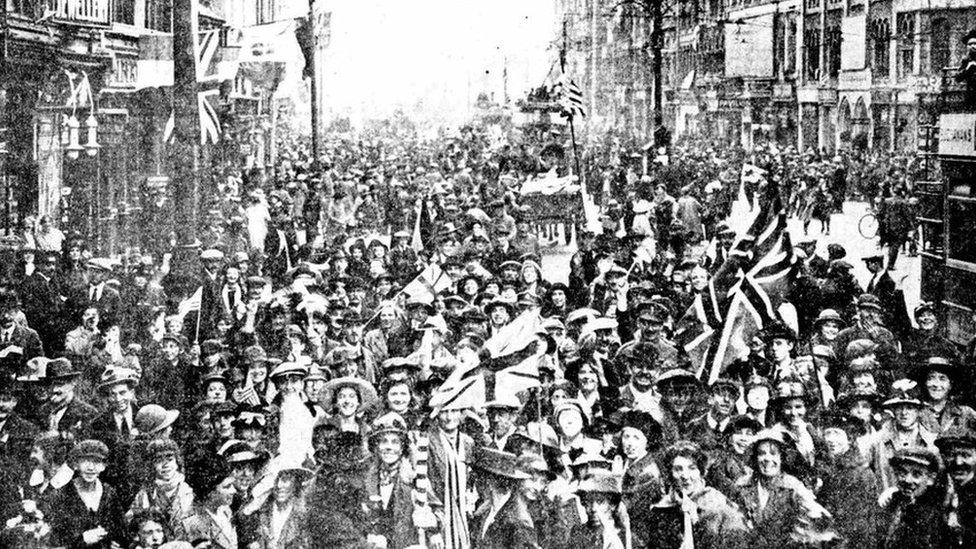
- Published8 November 2018
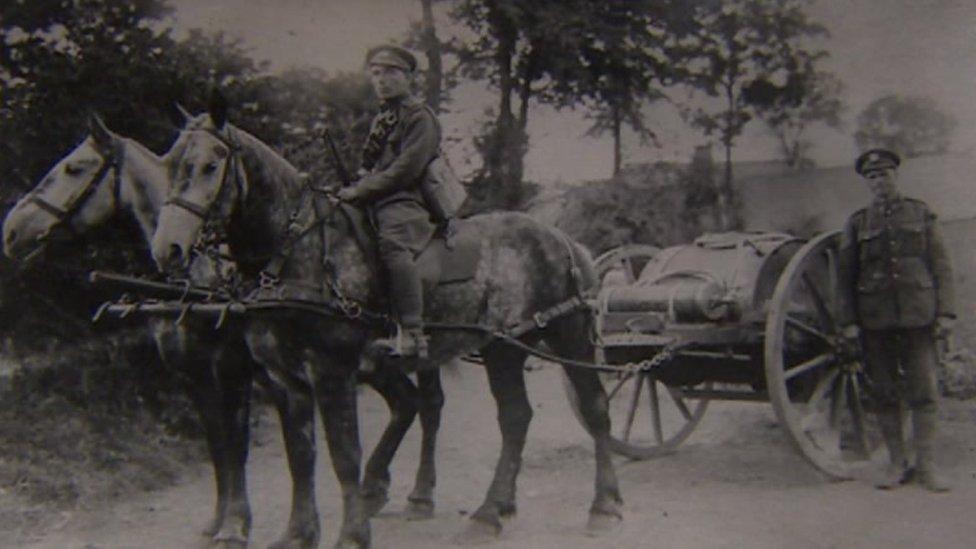
- Published6 November 2014
